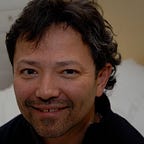Deleuze and History 1
Perspectives on Deleuze: History as Opening
Theories of history can shed light on a philosophy of difference.
The philosophy of history is an examination of the theoretical foundations of the study of the past.
History plays a fundamental role in human thought: how we think of the past has meaning for us in the present and for the future.
And insofar as history is inherently social and political, questions of meaning and objectivity are perhaps even more pronounced than is the case with math and science.
Philosophy of History
There are two distinct branches of the philosophy of history: speculative or substantive thought aims to shed light on the workings and significance of the past considered as a whole; critical or analytical thought is primarily focused on the methods and procedures used by historians to study specific events in history.
It is the former we will focus on here. Of particular interest are questions asked in a substantive philosophy of history, such as:
Does history as a whole have meaning or structure or direction? How can we know, represent and explain history? How does the present affect our understanding of the past?
Ancient cultures tended to view the past as circular, repeating itself in cycles, ages of harmony and ages of discontent. Circular theories of history continued through to the 20th century in the works of historians such as Oswald Spengler and Arnold Toynbee, who identified cycles in the history of civilizations.
But from the Enlightenment onwards, the dominant vision of history was linear. Jean Jacques Rousseau posited history as advancing irreversibly towards perfection under the light of reason.
History as Structural
Under all of these visions of the workings of history, a structure or causality of one form or another is at work.
Historians tended to identify the flow of events as a whole as either following a structure or striving towards some purpose or pushing through causally or mechanistically.
But by the 20th century, theories arose that questioned whether there is an overall design to history at all; that either multiple forces are at work influencing historical patterns, or that history is to a large extent a series of discrete and unrelated occurrences without any simple goal or causal flow.
Constructing History
Some historians began to view history to a certain extent dependent on the present.
Constructivist theories posit that to do history is to create narratives that explain events in terms of a story that is unravelling, from a certain perspective.
That underlying any particular vision of history there are circumstances or an agenda or a perceived driving force that motivates such a vision.
Here we find references to Voltaire’s and Kant’s vision of the rise of reason and freedom as the motivating force behind their construction of historical events; or to the positing of an inner spirit of history as consistent with the Romantic vision of humanity; or to the social Darwinism of Herbert Spencer.
Philosophers of history began to question whether contextual factors motivating any particular vision of history not only determine the ultimate vision, but reflexively operate in the present to affect future events.
At issue here is, of course, the same problem we have identified throughout:
To what extent can we have an objective or representative view of history? Is there such a thing as the truth of history? Or are there only interpretations and perspectives?
Perhaps history is no more than something we perceive or experience, to which we assign one meaning or another, but are unable to know objectively.
I hope you enjoyed this article. Thanks for reading!
Tomas
Please join my email list here or email me at tomas@tomasbyrne.com.
Excerpt from my forthcoming book, Becoming: A Life of Pure Difference (Gilles Deleuze and the Philosophy of the New) Copyright © 2021 by Tomas Byrne. Learn more here.
